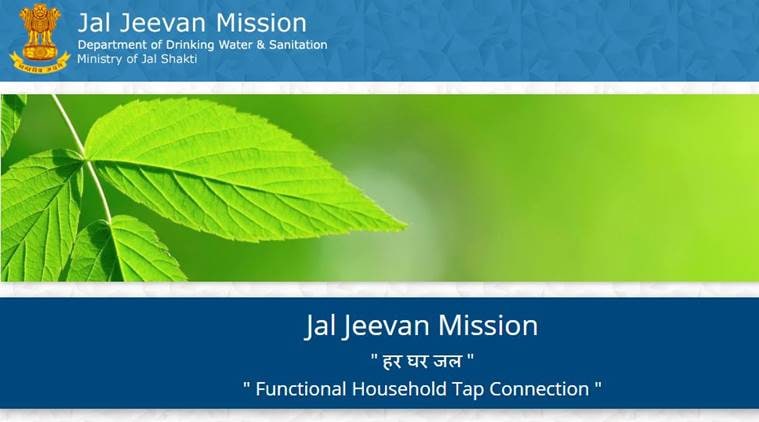 In India, the prime minister’s leadership in championing a hitherto neglected subject like sanitation has been unquestionably the key ingredient for success of Swachh Bharat Mission. (Photo: ejalshakti.gov.in)
In India, the prime minister’s leadership in championing a hitherto neglected subject like sanitation has been unquestionably the key ingredient for success of Swachh Bharat Mission. (Photo: ejalshakti.gov.in)
Last month, I had the opportunity to present the key learnings from the Swachh Bharat Mission (SBM) at the ministerial round table discussion on “scaling up sanitation in Africa” at Addis Ababa. While the ministers of sanitation from the African countries of Ethiopia, Nigeria, Kenya and Senegal marvelled at India’s astronomical success in tackling open defecation in just five years, they unanimously agreed that one of the biggest hurdles they faced in replicating the SBM model in their countries was that they were not able to convince their finance ministries to invest heavily in sanitation like India has done since 2014. The unspoken assumption was that they had not received political support from the highest level for scaling up sanitation in their countries.
In India, the prime minister’s leadership in championing a hitherto neglected subject like sanitation has been unquestionably the key ingredient for success of SBM. This then triggered the large investment on sanitation through public financing. We have been very fortunate that since 2014, our finance ministers saw the importance of investing in sanitation and its far reaching heath, economic and environmental benefits. Hence, the central and state governments have invested in excess of one lakh crore on sanitation over the past five years. A majority of these funds have gone towards incentivising the poor and marginalised households to construct and use household toilets, bringing about behaviour change, and building capacities of field functionaries. Over 10 crore toilets have been built in rural India and nearly 55 crore people have stopped defecating in the open, all in just five years. This has contributed in bringing down global open defecation by more than half.
The returns on these investments have been manifold, and their effects on the broader economy, markets and employment have been significant. The UNICEF recently estimated that investments in sanitation in India are yielding a 400 per cent return with each rural household in an open-defecation-free village saving Rs 50,000 on account of avoided medical costs and time savings. The Toilet Board Coalition has estimated that the sanitation infrastructure and services market in India will be worth over $60 billion by 2021, many new jobs, even in the most rural areas of the country, apart from reducing health and environmental costs and generating savings for households. Many people engaged in the business of manufacturing toilet related hardware accessories have reported huge growth in sales during the SBM period. They project a continued uptrend through retrofitting and upgrades. This has been corroborated by another recent study by UNICEF in which they have estimated that SBM has resulted in creating over 75 lakh full time equivalent jobs over the past five years, giving the rural economy a major boost.
It is fairly clear now that investment in sanitation is actually a facilitator for broader economic, health and social gains. This is the chain of arguments that we encouraged the sanitation ministers of Africa assembled at Addis Ababa to use to bring their finance ministries on board.
Back home, our government continues to prioritise the water and sanitation sectors as key pillars of broader rural development. The government is committed to ensuring that this success is sustained. On October 2, 2019, the prime minister, when commemorating the ODF declaration by all states, said that this is but a milestone and not the finish line, and that we must all ensure that people continue to use toilets and that no one is left behind. This has been backed up by the finance minister in the budget for 2020-21, wherein she announced about Rs 10,000 crore for rural sanitation to focus on ODF sustainability, bio-degradable waste management, greywater management, fsludge management and, critically, plastic waste management for all villages by 2024.
The next critical basic service, and arguably the most aspirational of them all, that this government is committed to delivering, is piped water supply. On Independence day this year, the prime minister announced the Jal Jeevan Mission (JJM) from the ramparts of the Red Fort with the goal of ensuring piped water supply for all households of India by 2024 and with a commitment of Rs 3.6 lakh crore of central and state funds for the scheme. In the Union budget for 2020-2021, the government has already allocated Rs 11,500 crore for JJM, with an additional Rs 12,000 crore being made available through extra budgetary resources.
In addition, a huge impetus to the rural water supply and sanitation sector is the earmarking of 50 per cent of the Rs 60,750 crore grant for rural local bodies provided under the Fifteenth Finance Commission for drinking water and sanitation. This will ensure that the gram panchayats and local communities have more skin in the game, and are responsible for the upkeep of their water and sanitation infrastructure, providing a boost to the sustainability of service delivery to people. This approach will ensure that just like sanitation, provision of water supply and its upkeep will also become everyone’s business.
The writer is secretary, Department of Drinking Water and Sanitation, Ministry of Jal Shakti. Views are personal.